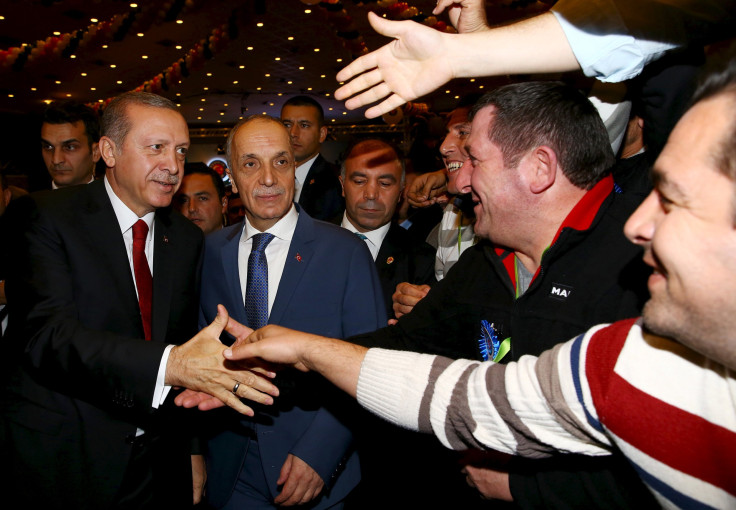Russia-Turkey Crisis Is Pushing Ankara Toward Ukraine With New Military Modernization Partnership

As tensions between Moscow and Ankara continue, Turkey has turned to another Kremlin foe and Eastern European state: Ukraine. Defense firms in Turkey and Ukraine have begun talks on tank modernization programs, Defense News reported Sunday.
Both Turkey and Ukraine find themselves at odds with the Kremlin. Russia applied harsh economic sanctions against Ankara after Turkey shot down a Russian jet at the end of November, saying the aircraft crossed into its sovereign airspace. Moscow denies this allegation. Ukraine continues to battle Russian-backed separatists in the Eastern Donbass region in a conflict that has left over 8,000 people dead. Moscow continues to deny playing any direct military role in the conflict in Ukraine. The situation has prompted the leaders of Turkey and Ukraine to warm relations.
"We have agreed on a plan of our actions and preparations for my visit to Turkey, which is due in the first quarter of 2016," Ukrainian President Petro Poroshenko said at the start of the month. "We are expecting this visit to make a breakthrough."
Ukraine’s Ukroboronprom and Turkey’s Aselsan defense companies are looking at ways to create joint programs for tank upgrades, with an official from Aselsan saying the cooperation could move into other fields, including artillery and personnel carriers.
The Turkish government signed a contract with Aselsan at the end of November for a weapons system, known as the Akkor, which protects against anti-tank missiles and rockets. Aselsan officials said cooperation with Ukroboronprom could extend to the Akkor system.
Turkey has long depended on Russia for its energy needs, with the trade relationship between the two countries valued at approximately $31 billion. After the downing of the Russian jet, the Kremlin applied sanctions on Turkish agricultural products as well as the tourism sector.
“In terms of generalized day-to-day trade, Turkey will be the main loser,” Jacob Funk Kirkegaard, senior fellow at the Peterson Institute for International Economics, told International Business Times. “If Russia continues the sanctions on highly perishable items, it will not be easy for Turkey to sell them elsewhere.”
© Copyright IBTimes 2024. All rights reserved.












